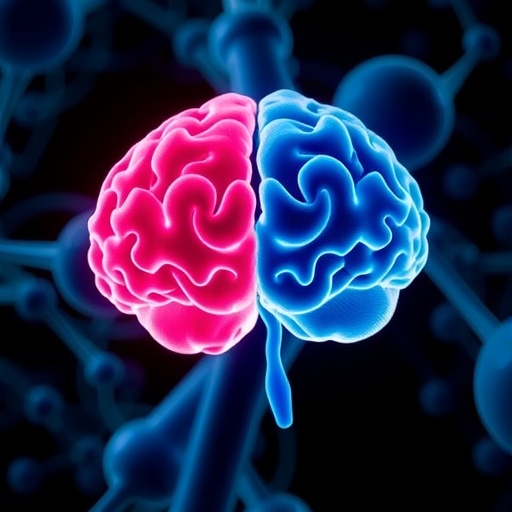For decades, scientists have understood that hormones play a critical role in modulating brain function, influencing everything from mood and motivation to energy levels and cognitive processes. Despite this fundamental knowledge, the precise molecular and neurological pathways through which hormones exert their effects remain enigmatic. A new groundbreaking study has now shed fresh light on how estrogen, a key female sex hormone, intricately modulates brain activity, particularly impacting learning mechanisms by altering dopamine signaling in reward circuits.
The research emerges from an interdisciplinary collaboration involving neuroscientists from New York University and Virginia Commonwealth University. Published in the highly respected journal Nature Neuroscience, the study meticulously delineates how estrogen levels fluctuate across the female reproductive cycle, driving significant variations in dopamine-mediated neural responses that govern reinforcement learning. By focusing on laboratory rats, the researchers employed rigorous experimental protocols to parse out the nuanced interactions between hormone fluctuations and cognitive adaptability.
Central to their findings is the revelation that estrogen amplifies dopamine transmission within the brain’s reward centers, particularly areas like the striatum where dopamine’s “reward prediction error” signals are processed. These signals are essential for reinforcement learning—the ability to modify behavior based on the outcomes of previous actions. When estrogen concentrations increased, dopamine signaling intensified, resulting in a heightened capacity for the rats to associate auditory cues with the availability and quantity of a water reward. This enhanced learning efficiency illuminates how estrogen directly facilitates synaptic plasticity and neural circuitry reconfiguration during critical learning phases.
Conversely, the study found that suppressing estrogen activity led to diminished dopamine responsiveness and impaired learning performance in the rats. This hormonal modulation did not broadly affect cognitive functions such as decision-making capacity but was specifically tied to the reinforcement learning paradigm. Such specificity underscores the intricate biochemical precision with which estrogen influences neural substrates governing learning, delineating a clearer boundary between hormone-driven learning effects and other cognitive domains.
The broader implications of this work resonate profoundly in the context of psychiatric and neuropsychiatric disorders, many of which display symptom variability linked to hormonal fluctuations. Christine Constantinople, senior author and professor at NYU’s Center for Neural Science, emphasizes the significance, noting that better understanding estrogen’s role could illuminate biological pathways implicated in diseases like depression, anxiety, and schizophrenia, which frequently manifest distinct patterns across different hormonal states.
Carla Golden, the lead author and an NYU postdoctoral fellow, highlights the novel biological nexus uncovered between estrogen and dopamine in reward processing. By elucidating this intersection, the findings provide a compelling neurochemical basis for observed behavioral changes during reproductive cycles and offer new angles for therapeutic intervention targeting hormone-related cognitive dysfunction.
Methodologically, the study employed precise measurements of neural activity patterns through electrophysiological recordings and pharmacological manipulations to isolate estrogen’s effects on dopamine neurons. The controlled experimental paradigm allowed the team to measure reward prediction errors—discrepancies between expected and actual rewards—that are crucial for updating behavior based on new information. The enhancement or suppression of these errors through hormonal modulation provides definitive evidence for estrogen’s pivotal role in dynamizing the reinforcement learning machinery.
This work contributes to a growing body of research suggesting that the brain’s reward system is not static but dynamically tuned by internal physiological states, with estrogen emerging as a key modulator. It challenges previous assumptions that neurotransmitter systems operate independently of endocrine factors and propels forward a more integrated view of brain function where hormones and neural circuits coalesce to shape cognitive and emotional outcomes.
Notably, although the primary focus was on female physiology, the team argues that their findings may have broader relevance, prompting further investigation into how sex hormones influence learning and psychiatric vulnerability in both sexes. As hormone levels naturally ebb and flow throughout life stages such as puberty, menstrual cycles, pregnancy, and menopause, these insights provide vital clues to the complex interplay between physiology and behavior.
The research received robust financial support from prestigious institutions including the National Institutes of Health and the National Cancer Institute, reflecting the significance attributed to unraveling hormone-brain relationships. While the data builds a strong foundation for future exploration, the authors underscore the need for human studies to translate these mechanistic discoveries into clinical applications targeting cognitive impairments and mood disorders linked to hormonal dysregulation.
In summary, this pioneering study clarifies a crucial biological pathway whereby estrogen modulates reward-based learning through dopamine signaling enhancements, opening new avenues to understand how hormonal dynamics shape cognition and potentially inform treatment approaches for neuropsychiatric conditions. By bridging molecular neuroscience with behavioral science, the research offers a transformative perspective on the hormonal orchestration of brain function.
Subject of Research: Animals
Article Title: Estrogen modulates reward prediction errors and reinforcement learning
News Publication Date: 11-Nov-2025
Web References: 10.1038/s41593-025-02104-z
Keywords: Hormones, Estrogen, Decision making




